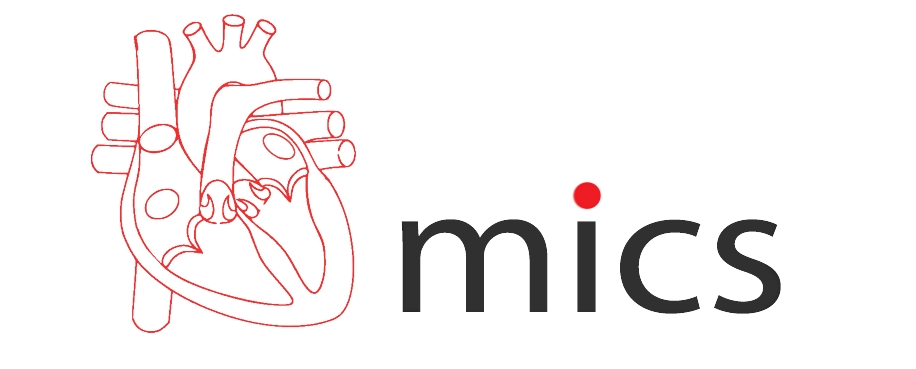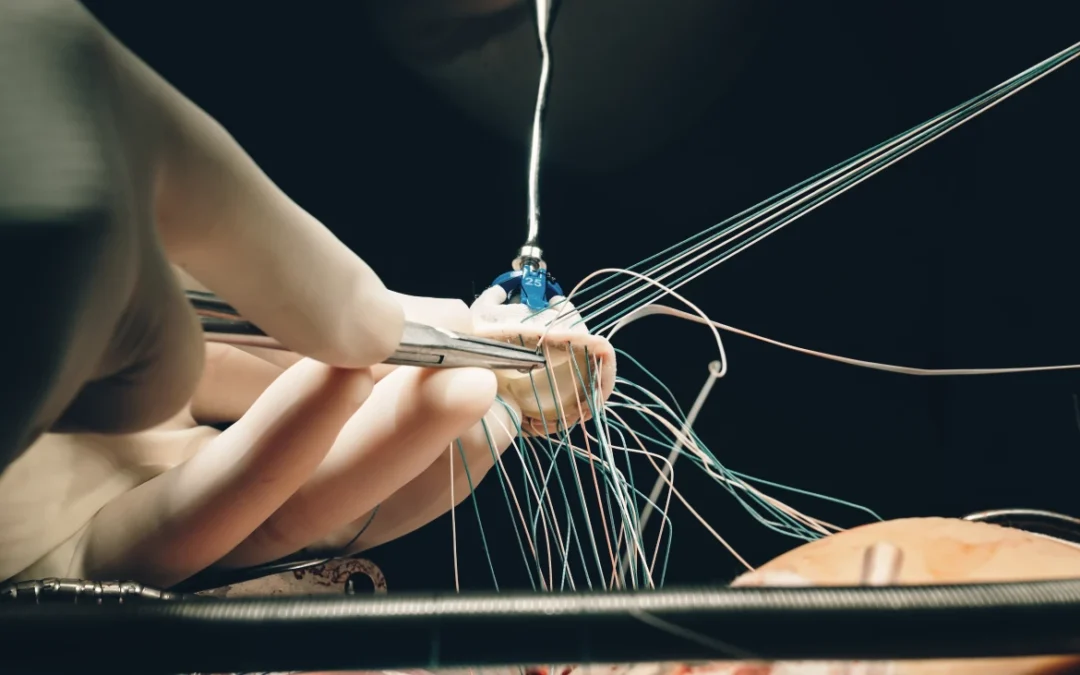What is Minimal invasive Heart valve Surgery
A minimally invasive heart valve surgery is a kind of surgery that is performed through a small chest incision. This surgery offers less scarring, faster healing and reduced pain in comparison to traditional open heart surgeries.
Why choose minimally invasive heart valve surgery?
Minimally invasive heart valve surgery is safe and the success rate is high with less risk. Let’s understand its benefits in detail as given below:
- Smaller incisions: During minimally invasive valve surgery, a surgeon makes a small incision to proceed with his/her surgery.
- Less scarring: Since the surgery involves making a small incision in the body, hence there is less scarring. Also, the scar fades away and is almost invisible within a few months.
- Reduced pain: Open heart surgery is a really painful procedure because it involves a large incision in between the breastbone. However, with minimally invasive heart valve surgery, patients feel less pain because it doesn’t involve cutting the breastbone, but a small incision.
- Lower complications: During minimally invasive heart valve surgery, blood loss is minimised in comparison to open-heart surgery.
- Shorter hospital stay: Finally, one of the most attractive benefits of minimally invasive valve surgery is the shorter hospital stay. People who undergo minimally invasive heart valve surgery generally return home within 3 to 4 days, instead of 8 to 10 days as is mostly done in traditional open heart surgery. This allows patients to pursue their normal activities much more quicker than would have been able to do with traditional surgery.
- Lesser medications: Minimally invasive heart valve surgery involves less medication that ultimately helps a patient to recover fast without bearing any side effects of medications.
Who is a candidate for minimally invasive heart valve surgery?
Your surgical team will carefully assess your suitability for minimally invasive valve surgery. He/she will check several factors, including the type of heart disease you have and how severe it is, your medical history, age and lifestyle, as well as the results of tests conducted prior to surgery will also be analysed.
Minimally invasive heart valve surgery is preferable for patients who are willing to start their daily routine as soon as possible. Instead of waiting a month or more, they will be back to work much quicker. It’s the best surgery for someone who can’t handle the long recovery of traditional procedure and prefer a quick recovery period.
What Are the Types of Minimally Invasive Heart Valve Surgery?
Unlike traditional open heart surgery, minimally invasive heart valve surgery is performed through a small incision between the ribs, which often leads to less scarring and pain, and allows one to join work soon. Have a look at different types of minimally invasive heart valve surgery:
1. Aortic Valve Replacement: This surgery (also known as mini-thoracotomy) is done to treat patients with narrow or leaking valves who often face chest pains or shortness of breath. With minimally invasive aortic valve replacement, patients recover fast. The length of stay in the hospital is minimised in comparison to the traditional open heart valve strategy and loss of blood is also much reduced.
2. Mitral Valve Repair: Mitral valve is one of the important components of our hearts that helps blood flow through your heart properly. With minimally invasive mitral valve repair, one can fix a problem with the mitral valve. This kind of surgery is performed through a small chest incision.
3. Mitral Valve Replacement: Mitral Valve Replacement is a special kind of minimally invasive valve surgery that helps create a new path for blood flow around a blocked artery in the heart. During this surgery, a healthy blood vessel is taken from the chest or leg area and then the vessel is connected below the blocked heart artery.
4. Tricuspid Valve Repair/Replacement Surgery: The tricuspid valve is one of the four heart valves.
It helps blood flow in the correct direction from the right atrium to the right ventricle. Tricuspid valve disease is a condition that occurs when the valve between the two right heart chambers doesn’t function properly. With Tricuspid valve repair/replacement surgery, you’re able to treat a damaged or diseased tricuspid valve.
5. Double Valve Replacement Surgery: A double valve replacement surgery is a combination of both the mitral and the aortic valve surgery. This form of surgery is only preferred for difficult cases.
What about recovery from minimally invasive heart valve surgery?
After minimally invasive heart valve surgery, people stay in ICU (intensive care unit) for just one day to prevent fluid build-up around their heart. Then, they are shifted to the normal ward and are kept under observation for 2 days. On 4th day, they are discharged. Within 7-10 days, they get back to the previous routine.
Minimally invasive heart valve surgery can help you live better.
Since the heart is also a part of the body and is continuously exposed to different unhealthy factors, therefore there is always a possibility of developing different complications inside the heart. But with minimally invasive valve surgery, you recover well from heart-related problems without much pain and complications. Cosmetic improvements are also seen.
Another best thing about this surgery is that the patients use fewer medications, henceforth, they are relieved from the side effects of the medicines. Patients get active within a shorter period of time because minimally invasive heart valve surgery prevents pain and blood loss.
Frequently Asked Questions
Learn How it Works!
How long does it take to recover from minimally invasive heart valve surgery?
After minimally invasive heart valve surgery, most of the patients recover in the hospital for three to four days. Full recovery usually takes seven to ten days.
Is minimally invasive heart valve surgery better than open heart surgery?
Definitely! Minimally invasive heart valve surgery is better than open heart surgery. Its benefits include – less pain, faster recovery, no cutting of bones, shorter stay at the hospital, less blood loss and minimal scarring.
Can you live a normal life after a valve replacement?
Yes! One can live a normal life after a heart valve replacement.
Can they replace a heart valve without open heart surgery?
Yes, heart valves can be removed without open heart surgery. Thanks to minimally invasive heart valve surgery.
What happens if you don't replace a heart valve?
If you don’t replace a heart valve, heart failure or cardiac arrest can occur.
Is there an age limit for heart valve replacement?
Not as such! Heart valve replacement surgeries are being performed with increasing frequency in patients more than 80 years of age. However, people over 80 are also successfully surviving heart valve replacement surgery.

